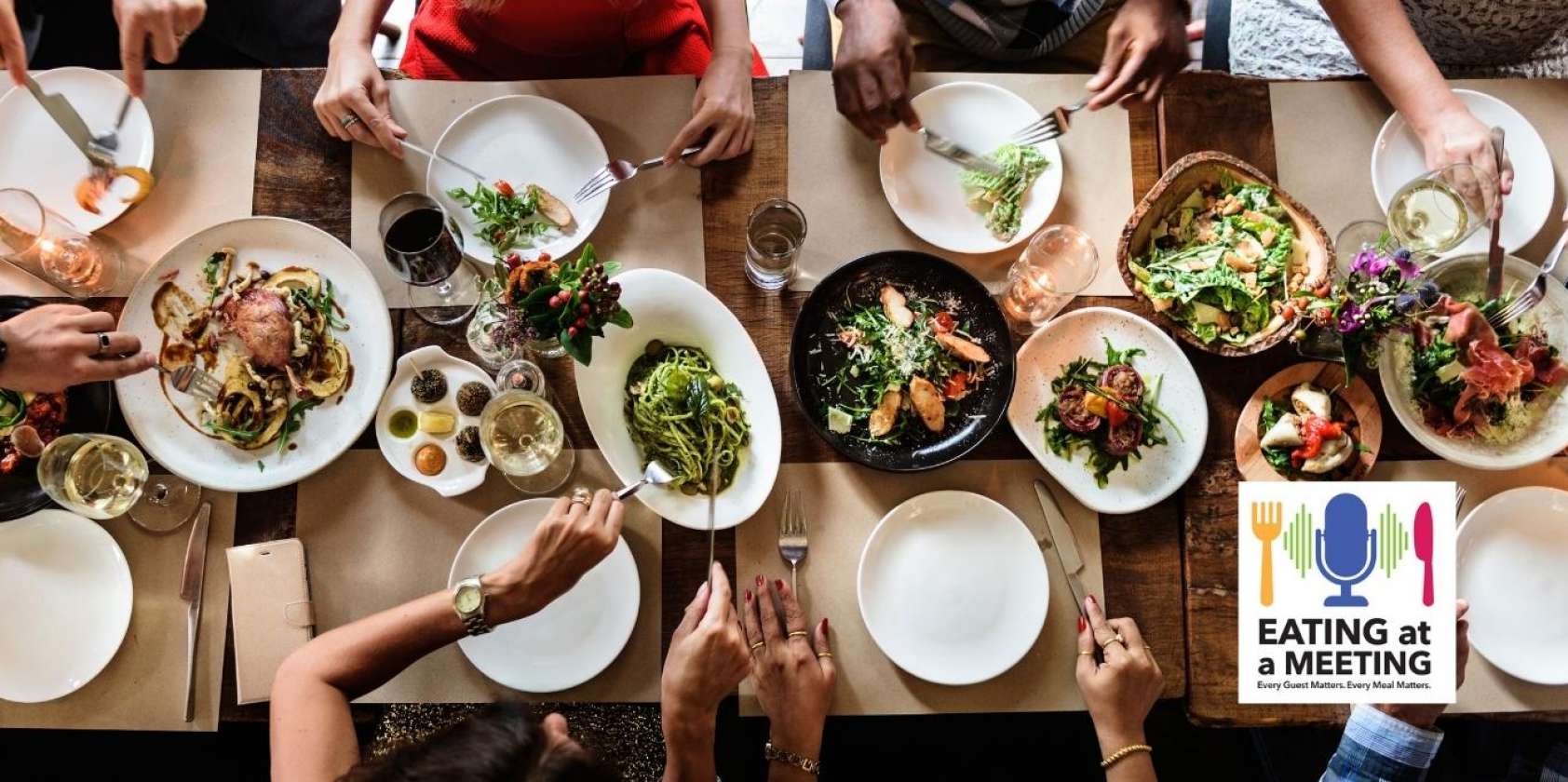Equity & Inclusion
An equitable, inclusive, and healthy food and beverage program should work for all attendees
Food and beverage is not often considered when discussing diversity, equity, and inclusion, despite the fact that food allergies, cultural background, religious practices, ethical beliefs and physical needs are all differences that we bring to the dining table. Being able to get to the table (in the case of attendees with disabilities) and having something safe and delicious to eat and drink is essential to providing equitable and inclusive experiences where everyone feels like they belong.
Listen to these episodes of Eating at a Meeting to gain a better understanding on how food and beverage experiences must incorporate the diversity of social and ethnic backgrounds, genders, dietary needs, physical disabilities and more.
Food is more than "lunchtime." It’s an integral part of the experience. Learn how Bonni Scepkowski designs stellar meeting menus to reflect audience demographics, company culture, and the vibe of the program.
Margaret Clegg, MI Gluten Free Gal, shares her experience of living with celiac disease for two decades and what food safety means to her.
By focusing on what can be control when preparing meeting menus for those with food allergies and other dietary needs meeting professionals, caterers and event hosts can provide a plethora of opportunities and create much better experiences.
Chef Kristina Stanley, a member of the Red Cliff Lake Superior Chippewa, honors her indigenous heritage by creating, selling and promoting the use of food that features indigenous ingredients and tribally-sourced products to produce healthy meals.
Keitra Bates is on a mission to preserve and promote culinary culture and empower economic inclusion, business development and growth opportunities through Marddy's, the food incubator that provides local food entrepreneurs who are people of color, women and other marginalized populations a licensed facility for cooks to prepare and distribute…
After 20 years owning and running her own farm-to-table restaurants in Sonoma County, Duskie Estes is now running Farm to Pantry, taking her dedication to sourcing food ethically and advocating for small farmers to fighting food insecurity by distributing nutrient-rich foods to those in need.
Tiffanie Barriere, aka "The Drinking Coach" is a bartender who is making HERstory by providing history lessons with every cocktail she serves. Her main goal is education, service, and fun with every pour.
Michele Payn wants us to better understand the connection between food and the farm. One way she does that is by bringing clarity and common sense to help us all navigate the grocery store. As one of North America’s leading advocates, she is passionate about getting back to the truth…
Shandee Chernow, CEO of Certistar, is using her life-threatening food allergy to elevate food allergy safety and customer experience for restaurants.
Nora Burns is passionate about workplace culture. She wants HR professionals to know inclusion includes the food and beverage offered and served in the workplace.


